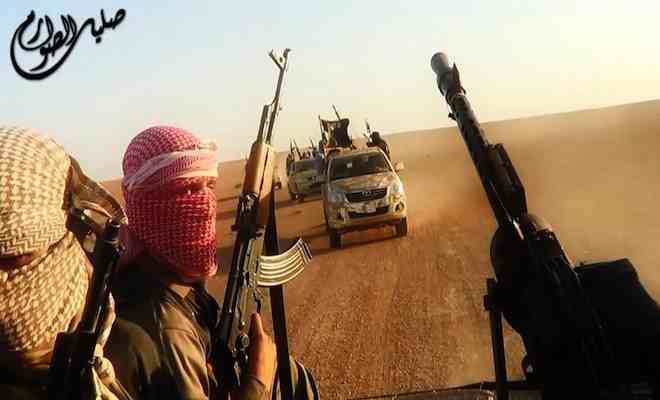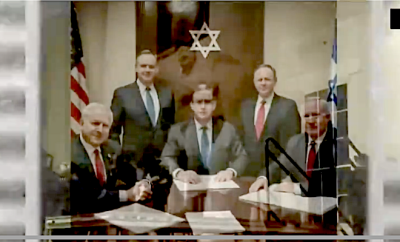 NEO.org ISIS
NEO.org ISIS
WW3
Saudi Arabia: Chickens Come Home to Roost
by , NEO:
In a recent statement issued by the Saudi authorities, it was claimed that the government has successfully apprehended some ISIL operatives who were planning to carry out certain attacks in the country. During last three weeks, at least two major attacks took place inside Saudi territory in which sectarian minorities were specifically targeted. These attacks and subsequent statement(s) clearly establish that the menace of the ISIS, which Saudia itself financed and established, is now hunting her. On the other hand, attacks b Yemen Houthis inside Saudi Arabia have also started to contribute to an extremely deteriorated military situation. The situation in Yemen, which actually started to deteriorate in 2011, is partly a result of the policies the Arab states, including Saudi Arabia, have been following for decades—hence, Yemeni blowback. As it stands, Saudia is now under attack from two different sides, facing two different enemies—enemies that the Saudia itself created in the first place.
Given such a situation, it seems appropriate to state that Saudi chickens have come home to roost. From once being the biggest financer of the ISIS and other such groups, Saudia is now becoming the prime target of those snakes it once fed. As a matter of fact, the ISIS has already announced that it is planning to carry out major operations in Saudi Arabia.
By launching operations inside Saudi Arabia, the ISIS seems to be pursuing two goals. Firstly, as it is an open secret that Saudi Shias and the central government in Riyadh are not on friendly terms and by taking such actions against Shias as it did in last three weeks, the ISIS can actually worsen the current problems that exist between Saudi government and the country’s Shia population, thereby causing numerous problems for the Saudi government to tackle. The second goal, as it is deeply related to the first goal, is to settle scores with Shias and this is a goal that the ISIS has continuously been pursuing since its ascendance. If this group manages to change the Saudi Arabia’s general atmosphere in favor of sowing serious conflicts between Shias and Sunnis, it could achieve its goals on a much larger scale. By succeeding in creating such a scenario, the ISIS can not only fan the flames of discord between Shias and Sunnis, but also intensify rivalry between Iran and Saudi Arabia across the region that may lead to a limited, if not full scale, ‘war’ between the erstwhile ‘enemy states.’
The ISIS/ISIL, created to fight Saudi proxy wars in the Middle East, was not expected to have taken such a violent turn to Saudi Arabia itself. It happened only when the Kingdom joined in October 2014 a broad coalition bombing the group’s targets in Syria and Iraq. As such, as a result of this change in policy, in November 2014 the ISIL was blamed for the deaths of seven Shia Muslims, including children, in the country’s Eastern Province. Realizing the menace reaching its borders, Saudi Arabia has taken several steps to stop its citizens joining fighters in Syria or Iraq, with the country’s highest religious authority condemning the armed group as “apostates” and labelling them the “number one enemy of Islam”.
Notwithstanding the way Saudia is having to face the heat, there are still some who expect that Saudia’s fight against the ISIS can have a positive effect on Iran-Saudia bi-lateral relations. They believe that with both countries agreeing to face this threat mutually, and with the US playing a constructive role, they may be able to ameliorate their historical rivalry. However, as is stands, rivalry between Iran and Saudia is too deep and too complex to find an easy solution in an alliance against the ISIS. The main problem that prevents this from happening is the rivalry that has existed between Iran and Saudi Arabia, and which has got intensified ever since Riyadh started its aggression against its southern neighbor, Yemen. This Saudi aggression again has sectarian underpinnings, making it all the more difficult for the competing states to come up with some sort of joint action plan against the ISIS. This is the main bone of contention today between the two countries on which ISIS especially counts. Although Islamic caliphate is longed by Arabs as an ideal, the announcement of the caliphate by ISIS is also indicative of a deep rift between the interests of Saudi Arabia and ISIS. This rift is going to benefit Iran and Syria because it will help them take ISIS’ attention away from themselves.
This proposition becomes even more credible when one looks at the strategic and tactical outlook of the ISIS/ISIL. Given the attacks Saudia has received since November 2014, there are certain doubts about whether ISIS and other extremist groups are supported by Saudi Arabia and Qatar anymore. Given the ISIS’ claim to establishing an Islamic state and in view of the fact that Saudi Arabia is part of the map that ISIS has drawn for the region, it seems that Saudi Arabia is of no more interest to the ISIS. The ISIS, it seems, has already amassed enough resources at its disposal to launch what it considers the “final operation” geared towards the establishment of ‘Islamic Caliphate.’ Although we still can claim that in strategic terms, Saudi Arabia has been supporting such groups in Syria and Iraq, however, a review of the existing strategic conditions in and around Saudi Arabia would show that that the ISIS has currently turned into a threat to Riyadh.
Notwithstanding this position of Saudia vis-à-vis the ISIS, local Shias still continue to believe that the recent attacks were a conspiracy of the ruling cliché against them and were actually carried out by Saudi security forces to strike terror in their hearts. They believe that it was done in order to prevent local Shia population from causing any trouble against Saudi intervention in Yemen. By blaming the ISIS, the Saudi ruling cliché, they believe, is trying to divert Shia population’s attention away from the actual issue: invasion of Yemen. The importance of keeping the local Shia population pacified by terrifying it in this regard becomes clear when we take into account the fact that the most important argument used by Saudis to justify their military aggression against Yemen is domination of Shia Houthis on the country in collaboration with Iran and subsequent security threats that arise for Saudia and especially for the strategic strait of Bab-el-Mandeb from this situation.
Both of these situations, although apparently look different, have a very serious aspect in common. In both cases, Saudia wanted to enhance its own position and influence in the region. It helped develop the ISIS to undermine Iran’s position in the Middle East, and it attacked Yemen to achieve the same objective. Up to this time, the Saudi government has mostly tried to relay on its religious status as the Custodian of the Two Holy Mosques, as well as on its economic might that stems from oil exports, to uplift its national prestige. However, it now appears that the country is making an endeavor to take advantage of its military power in an objective and active way to realize this goal.
In other words, the new leadership in Saudi Arabia maintains that simple recourse to traditional tools and approaches has weakened the country’s national prestige and reduced its role in regional developments. Therefore, Riyadh feels compelled to take advantage of the military hardware, on which it has spent billions of dollars, to boost its regional prestige through a brutal display of military power. The case of Yemen has been chosen for the application of the military power because Saudis believed that their attack on Yemen will be followed by less regional and international opposition as well as lower resistance and military cost than other similar cases. However, in its quest to achieve more power, it has only got more enemies on its borders. Therefore, as the possibility of Saudia’s achieving its goals in Yemen is actually fading out, the possibility that the aggression against Yemen is having a negative effect on the regional prestige of Saudi Arabia is increasing.
One important reason that is contributing to the decline of Saudi influence and inability of Saudia in kneeling Houthis down is intensification of internal rivalries within Al Saud family. Saudi Arabia, which has failed in most regional cases it has been involved in, is now seeing itself in a region where not only Iran’s power has been constantly on the rise, but the United States and other players are not willing to manage regional crises and counteract Iran’s regional policies anymore. On the other hand, many see the problems Saudia is facing today a result of Saudia’s resort to old mechanism of power-politics.
Saudi Arabia’s domestic and regional moves in the new era, alongside other realities, indicate that Riyadh has not a good grasp of the profound changes taking place in the region and beyond. What is even worse is that they are indicative of Saudi Arabia’s effort to struggle against changes that are taking place in international politics of the Middle East. Unlike the administration of Iranian President Hassan Rouhani, which has been formed on the basis of a new understanding of regional developments and is promoting its regional policy on that basis, Saudi Arabia is still insisting on sticking to the policy of carrot and stick. As a result, all actions taken on the basis of such traditional tools will certainly boost the regional dynamism that will only lead to escalation of unrest, insurgency, and instability. Coming to power of young elites in Saudi Arabia, who put the highest emphasis on military solutions and imposing those solutions on other countries, shows that the future Saudi Arabia will be a country resisting to change the status quo at both regional and domestic level. It is certain that any such effort to resist change under critical conditions will lead to nothing, but more crisis in the region that will ultimately come back to haunt the ruling cliché of Saudi Arabia. Saudi Arabia is, by resisting the changes taking place at regional level, sowing seeds of its own destruction.
Salman Rafi Sheikh, research-analyst of International Relations and Pakistan’s foreign and domestic affairs, exclusively for the online magazine “New Eastern Outlook”












